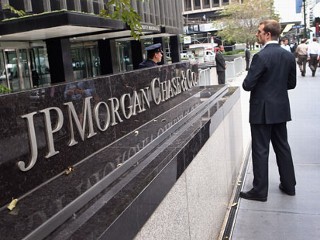The financial news media over the past few weeks has been giving inordinate attention to an unfolding corporate saga of a company called WeWork. The coverage focuses on the company’s CEO, a guy with long hair and a T-shirt named Adam Neumann, and its upcoming IPO. His background and what his company does was not an important part of the coverage, except that Neumann says he and his wife are friends with Jarod Kushner and his wife (net worth: $500 million), the son-in-law of Trump.
But what caught my attention is that Neumann met with Jamie Dimon (net worth $1.5 billion), the CEO of JPMorgan Chase, as if this startup was worthy of his significant input. It was. The reason: Chase is the company’s banker for WeWork’s hot IPO.
This was a suspicious meeting, so I looked into WeWork, which like SoftBank and many other New Age startups, do not actually make anything. However, this does not prevent today’s financial media from fawning all over them since they have huge market capitalizations thanks to financial engineering and the hope that they can be the next “disruptive” business, whatever that means.
It turns out that WeWork is nothing more than a company that leases short-term space to start-ups, companies, or individuals. That’s it. This dull business concept has been around since the 1970s, except that it was a service business without inflated billion-dollar capitalizations.
The significant difference today is that financial engineering and a new generation of financial reporters trained to salivate when they were invited to private equity, high tech, and hedge fund conferences, are now in the newsrooms. This is a set-back for average investors who can be easily conned into investing in companies with marshmallow financials and a so-what business model.
But today, thanks to financial engineering, hot money, naïve investors, and the near-corrupt private equity business, companies that have mediocre ideas can be turned into Hollywood starlets with a lot of financial makeup, hype and the co-operation of a naïve press that is always looking for the next “disruptive” technology, as long as it is not based on anything tangible or financially stable enough so its owner could easily get a new credit card.
I started working on this when this article by the very smart Matt Stoller was sent to me. Stoller does a great job of presenting this inflated operation and how it even exists thanks to the borderline corruption of private equity firms and their buddies looking to cash out before they are discovered.

My only addition to Stoller’s great research is that this sad excuse for an IPO would not even be possible without the failure of the financial media that is afraid to point out that this company is made of air.
Here is a hint from Stoller’s great article which explains how this happened:
Stoller writes: “Softbank’s model is to manipulate private capital markets as a way of drowning out competitors with cash. For instance, there were several ‘rounds’ of WeWork investment where Softbank was buying more shares at higher valuations.” That’s it. The share prices went higher due to manipulations in the private market, not through anything that happened with new clients paying for rental space.
I listen to Bloomberg and CNBC and their on-air interviewers fawn about WeWork’s business model, Neumann’s meeting with Dimon, valuations, the upcoming IPO and its sketchy future. The financial media has promoted hollow companies before since they value their own opinions and insights even when they are not based on reality. That is one reason why the media has failed to label Trump as a sociopath since it would ruin their hours of thoughtful discussions about his policies, plans, strategies, and historical context, even though many privately know Trump should really be walking around downtown Palm Beach in a bathrobe.
So, with that said, here is Mr. Stoller’s insightful article on We Work as another example of “counterfeit capitalism.”
This article, “The Stupidity of WeWork”, is reprinted from the Sept. 25, 2019 newsletter, “BIG,” by Matt Stoller,
an academic who focuses on failures in our capitalist society. You can subscribe to this very informative newsletter by clicking here.
“WeWork describes itself as offering the ‘“space-as-a-service” membership model that offers the benefits of a collaborative culture, the flexibility to scale workspace up and down as needed and the power of a worldwide community, all for a lower cost.” In other words, the company sublets office space.
I glanced over the company’s S-1. Here’s the graphic of the company’s business model.
This isn’t to say WeWork is a total waste. The spaces themselves are nicely done, and there is probably a small market opportunity in serving smaller enterprises that need office space. But there’s no justification for WeWork as it currently exists. The company is losing an enormous amount of money and has no path to profitability at scale. The old business model, in case it’s not obvious from this McKinsey-ified chart, had been to make stupid graphics to show investors in hopes that they give ex-CEO Adam Neumann more money. The new business model will be to beg investors to give money to the new co-CEOs, who will radically change the company by wearing suits to investor presentations instead of ill-fitting t-shirts.
The Narcissism of Modern Financiers
There are a few key players in this saga. The first is ex-CEO Adam Neumann, who according to the S-1 was pivotal to the company.
Our future success depends in large part on the continued service of Adam Neumann, our Co-Founder and Chief Executive Officer, which cannot be ensured or guaranteed.
Neumann was an untested CEO with an unlimited line of credit. As I read more stories about him, I noticed reporters dance around his personality. They call him ‘quirky,’ ‘charismatic,’ ‘unorthodox,’ and so forth. These are code words for something else.
Consider a few descriptions of how he and his family behaved. His wife, a New Age guru who was the chief impact officer, would fire employees because she ‘didn’t like their energy.’ They banned employee expensing of meals with meat (employees later saw Neumann eating meat). And then there’s this episode, which I found particularly revealing:
A few weeks after Mr. Neumann fired 7% of the staff in 2016, he somberly addressed the issue at an evening all-hands meeting at headquarters, telling attendees the move was tough but necessary to cut costs, and the company would be better because of it.
Then employees carrying trays of plastic shot glasses filled with tequila came into the room, followed by toasts and drinks.
Soon after, Darryl McDaniels of hip-hop group Run-DMC entered the room, embraced Mr. Neumann and played a set for the staff. Workers danced to the 1980s hit “It’s Tricky” as the tequila trays made more rounds; some others, still focused on the firings, say they were stunned and confused.
Mass layoffs followed by an expensive alcohol-fueled party hosted by a celebrity reflects a problematic leadership style, to put it mildly. Neumann paired poor judgment with self-dealing. By now the story of Neumann’s corruption is well-known; he has pulled roughly $700 million from the company, owns buildings personally he leases to WeWork, and flies around on private jets. But the self-dealing is camouflaged with something else. Take this passage from the S-1.
To evidence their commitment to charitable causes and to ensure this commitment is meaningful, if Adam and Rebekah have not contributed at least $1 billion to charitable causes as of the ten-year anniversary of the closing date of this offering, holders of all of the Company’s high-vote stock will only be entitled to ten votes per share instead of twenty votes per share.
I don’t think there’s a better example than this passage of using philanthropy as moral cleanser. It is something Anand Giridharadas has written about as a pivotal element of modern capitalism.
All of this, the faux philanthropy, the strange management choices, the personal behavior, and so forth indicates something very simple. I am going to be blunt, because it’s time to stop using euphemisms just because someone is rich and a business leader. Adam Neumann is not “quirky,” he is not “charismatic,” and he does not have “an unorthodox leadership style.” He is an untalented and abusive monster who lies to get what he wants. And he was given an unlimited credit line from which he could legally steal.
Now, Neumann himself isn’t very important, foolish charlatans are common in society. The question is why he became so powerful despite being so obviously unfit for a role stewarding billions in capital and managing thousands of people. And that’s where we get to the real power centers behind this fiasco, the financiers who lent WeWork large sums of money. This includes Jamie Dimon of JP Morgan and Masayoshi Son of Softbank.
Dimon’s role is prosaic; his bank essentially financed WeWork after Dimon was tricked by Neumann into thinking the real estate money losing enterprise represented the future. Dimon wanted JP Morgan serve as Neumann’s personal banker, to serve as the commercial banker to WeWork, to take the company public, and to offer credit services as well.
If you know Dimon’s actual reputation, him getting suckered isn’t surprising. From what I heard back in 2009, Dimon is a mediocrity who essentially got lucky his bank was too slow to get in on the subprime scam in 2006; he then used his bank’s incompetence at getting into the bubble as justification for how prudent he was. In this case, however, Dimon didn’t miss the fraud boat. JP Morgan managed to just make it into WeWork, the last round of the money losing fake tech bubble. Dimon will now portray himself as the adult cleaning up the mess, but of course, he’s more of an arsonist pretending to be a firefighter.
Son is a more interesting character. He’s a venture capitalist/empire builder who had been able to raise hundreds of billions of dollars to restructure industries globally. Son built his reputation in the first dot com boom with a lucky investment in Yahoo! and Alibaba. He has since restructured ride-sharing with large investments in Uber and its foreign counterparts. Like most major financiers, Son is a powerful and connected political operator. For instance, he’s an owner of Sprint, and he’s currently trying to force an illegal merger of Sprint with T-Mobile, hoping his political connections to Donald Trump can get it through merger review.
Generally speaking, Softbank’s model is to manipulate private capital markets as a way of drowning out competitors with cash. For instance, there were several ‘rounds’ of WeWork investment where Softbank was buying more shares at higher valuations. WeWork ostensibly became more valuable because Son said it was more valuable, and bought shares for higher prices. And since there was no public market for these shares, the pricing of the shares was totally arbitrary. WeWork then used this cash to underprice competitors in the co-working space market, hoping to be able to profit later once it had a strong market position in real estate subletting or ancillary businesses.”











